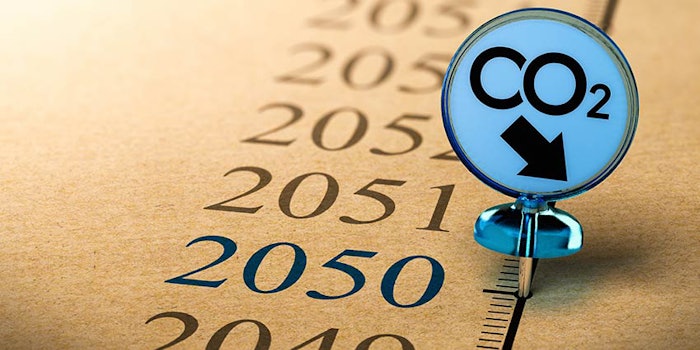
Givaudan has signed global movement “Business Ambition for 1.5°C,” which is an advocacy campaign proposed by the United Nations that calls on businesses to aim for net-zero value chain carbon emissions by 2050.
Previously: Givaudan Expands Nantong Facility, Doubles Flavor Production Capacity
By signing the movement, Givaudan pledges to set 1.5°C science-based targets aligned with limiting the global temperature rise and achieving a net-zero emissions economy by 2050. In line with Givaudan’s recently redefined purpose, the pledge is a milestone in its goals of becoming climate-positive before 2050.
Previously: Indena to Focus on Pharma, Sell off Cosmetics to Givaudan
In September, the company aligned on the 1.5°C trajectory with updated targets to reduce absolute scope 1 and 2 emissions by 70% between 2015 and 2030; the company had formerly approved targets to reduce emissions of scopes 1 and 2 by 30% in the same time frame, and to reduce scope 3 by 20%.
The Science Based Targets initiative (SBTi) approved the targets as consistent with levels required to meet the most ambitious goals of the Paris Agreement.
Scopes defined:
- Scope 1, direct GHG emissions: emissions that result from sources owned/controlled by Givaudan. Ex: emissions from combustion in owned/controlled boilers, furnaces, vehicles, etc. and emissions from chemical production in owned/controlled process equipment.
- Scope 2, electricity indirect GHG emissions: emissions that result from the generation of purchased electricity consumed by Givaudan. Purchased electricity is electricity purchased/brought into the company’s organizational boundary.
- Scope 3, other indirect GHG emissions: emissions that are a consequence of Givaudan’s activities, but result from sources not owned/controlled by Givaudan. Ex: extraction/production of purchased materials, transportation of purchased fuels, use of sold products/services, etc.
“The scale of the climate crisis is more visible than ever,” Givaudan CEO Gilles Andrier said. “Climate change is disrupting people, business operations and economies around the world. We must act now to have any chance of keeping global warming to a maximum of 1.5°C.”
“The science is clear: in order to limit the catastrophic impacts of climate change, we must ensure warming does not exceed 1.5°C,” said Paul Simpson, CEO of CDP, one of the SBTi partners. “The ambition is high but it is achievable — and science-based targets give companies a roadmap for getting there. Corporations worldwide have an unprecedented opportunity to be at the very forefront of the transition to a net-zero economy — and there is no time to lose.”










